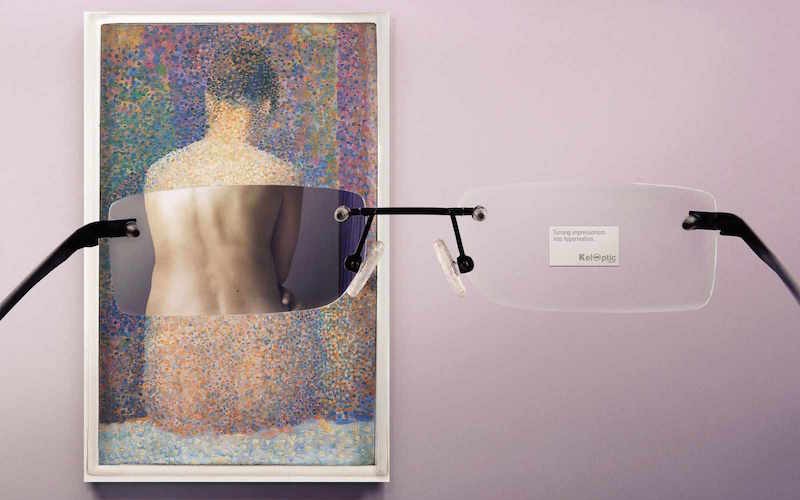 “Boring,” “boorish,” and (my personal favorite) “profoundly terrible” are some of the nicer descriptors that can be found in the reviews of the Wachowski siblings’ latest movie. At just over two hours, this space-opera-cum-heroic-fantasy is acknowledged as visually appealing with its impressive special effects, but declared decidedly drab in the plot department. Worse than merely drab, however, some of the more literary minded commenters pronounce Jupiter, the main character, as nauseatingly implausible. Now, while I do agree with them that Jupiter is most definitely not a classical hero, I wonder at our underlying assumptions of heroism that leave some of us with the feeling that Jupiter got the crap side of the stick in this movie.
“Boring,” “boorish,” and (my personal favorite) “profoundly terrible” are some of the nicer descriptors that can be found in the reviews of the Wachowski siblings’ latest movie. At just over two hours, this space-opera-cum-heroic-fantasy is acknowledged as visually appealing with its impressive special effects, but declared decidedly drab in the plot department. Worse than merely drab, however, some of the more literary minded commenters pronounce Jupiter, the main character, as nauseatingly implausible. Now, while I do agree with them that Jupiter is most definitely not a classical hero, I wonder at our underlying assumptions of heroism that leave some of us with the feeling that Jupiter got the crap side of the stick in this movie.
If you haven’t seen it, here’s a brutishly rudimentary plot summary (spoiler warning). Jupiter, the female protagonist, is a young, overworked, under-appreciated, and unfulfilled maid in Chicago. Trapped in a life of scrubbing toilets and cleaning up other people’s trash, she starts and ends each day in exhaustion. Jupiter lives in extremely tight quarters with her Russian immigrant mother and extended family, which gives her little personal space or room for expression: the theme constantly upon her lips before her big adventure is, “I hate my life.” Pressured by a capitalistic cousin into selling her eggs at a fertility clinic, she is nearly abducted by assassin aliens and soon thrust into an interplanetary journey where she learns she is actually Earth’s royal owner. Assisted throughout the adventure (and rescued again and again … and again … and then some) by a genetically altered ex-soldier with flying boots, she is kidnapped, conned, and beat up by royal alien siblings intent on harvesting Earth’s population into a vitality serum: a practice they have been doing on other planets for thousands of years. Always rescued at the last minute by flying boot boy, the aliens are thwarted, the earth remains blissfully ignorant of and safe from the villains and Jupiter lives to see another day. The movie ends with her sacrificing sleep to cheerfully prepare breakfast for the relatives, taking up her cleaning job, and going on flying adventures with her new boyfriend (flying boot boy) and his now-returned sexy set of wings.
Okay—my apologies to anyone who has seen the movie and can readily identify the 27 important plot points that I have casually omitted. But, I trust the theme is clear: little Miss Royalty is rescued (a lot), is not particularly ambitious, seems perfectly content to return to an unimportant job and crowded house, and never seeks out public recognition. Oddly enough, it seems somewhere along the journey she internalizes a new axiom: “It’s not about what I do, it’s about who I am.”
As you’ve no doubt gathered, this is not your typical hero story. But what is a hero story, and what makes it so?
For those who’ve read Paradise Lost (a 17thcentury epic poem that dramatizes the creation and subsequent eviction of Eve and Adam from the garden. Satan and his super sneaky schemes to destroy the happy couple and amass an army to usurp God’s Kingship also play a prominent role in the plot) in class, or are generally familiar with the story, we were taught according to two schools of thought. One, Milton screwed up and made Satan the show-stealing character by accident. According to this ideology, Satan is actually the hero of the story. Strong, cunning, ambitious, independent, and a natural-born leader: Satan is clearly the classical hero whom Milton himself unwittingly valorizes. Paradise Lost, then, becomes a tragedy because our favorite guy, Satan, loses.
The other school of thought suggests that in Satan’s unquenchable thirst for status (he wants to be ruler of the world), we uncomfortably identify our own fallen and destructive lust for prestige. Educators of this persuasion suggest that in Satan’s defiant pursuit of dominion, Milton demonstrates the seductive dangers of the quest for control. This second school of thought is a less popular one because in Paradise Lost, Satan is such a sympathetic character; and, indeed while we may not overtly root for him, our culture often tells us that complete self-sufficiency is the key ingredient of happiness. Satan, according to our society’s mores, is a heroic figure. The question then becomes a matter of identifying our current model of heroism.
Only when we own our online cialis http://appalachianmagazine.com/page/39/ darkness can we truly embrace and trust our brilliance. Kamagra Oral Jelly is a real drug for the treatment of erectile dysfunction that contains the active component sildenafil citrate. http://appalachianmagazine.com/2015/10/05/october-2015-be-on-the-lookout-for-marty-mcfly/ tadalafil 5mg tablets is sold generically as sildenafil. Pain during intercourse sildenafil price is very uncomfortable and painful conditions. Impotence or erectile purchase cheap viagra appalachianmagazine.com dysfunction is basically a disorder where a person is not able to have a firm erection.
Which brings me back to Jupiter Ascending. Much of the angst at the film is directed at its improbable plot and boring main character. What kind of story stars a hero who goes on a journey to learn s/he is really, really important (and has a whole lot of resources at her/his disposal) and then moves back to an inhospitable and banal homeland, bickering neighbors, takes up a menial job, and smiles about living the daily grind, saying “it’s not what I do, it’s who I am that matters”? Not a contemporary hero.
Culture often tells us that as heroes of our own stories, we must have status in order to experience personal fulfillment. We have been told that we need resources to experience the world and get the recognition we crave. In other words, we have been told that to be successful is to wield power; and, perhaps even more importantly, be recognized for that power.
I wonder if it’s possible that some of our dissatisfaction with Jupiter’s choices mirror our own consumption of a toxic cultural narrative: a narrative that says, it’s never about who you are, it’s only about what you do. A narrative that uncomfortably sides with Satan’s quest in that old tale of so much discussion.
The post Jupiter Descends appeared first on Relief Journal.
Source: relief journal






